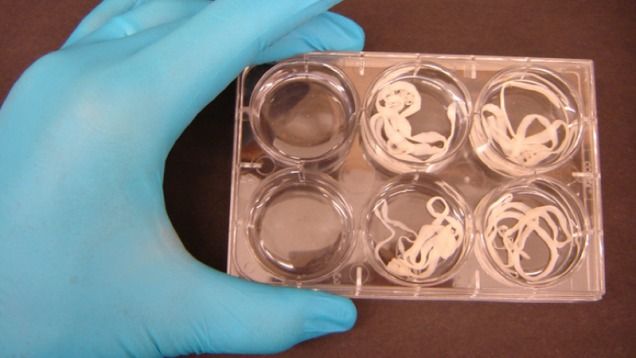Intestinal worms that can reduce inflammation. Could we GMO a probiotic worm to help reduce aging?
Intestinal worms have an incredibly bad reputation. The thought of them sneaking around inside our bodies and eating us from the inside is pretty unpleasant. But for decades, results coming out of lab after lab have shown that some kinds of helminths can be extremely beneficial to their host, and aren’t parasites at all.
Just 100 years ago, before toilets and running water were commonplace, everybody had regular exposure to intestinal worms. Thanks in part to modern plumbing, people in the industrialized world have now lost almost all of their worms, with the exception of occasional pinworms in some children.
Intestinal worms are properly called “helminths,” which most dictionaries will tell you are parasites. Exploiting their hosts, draining resources, sucking the life out of the body – that’s what parasites do, by definition. Indeed, many helminths, including the porcine tapeworm and the human hookworm, are known to cause disease and even death in the human population. Parasitic worms are still a big problem in some parts of the world.
